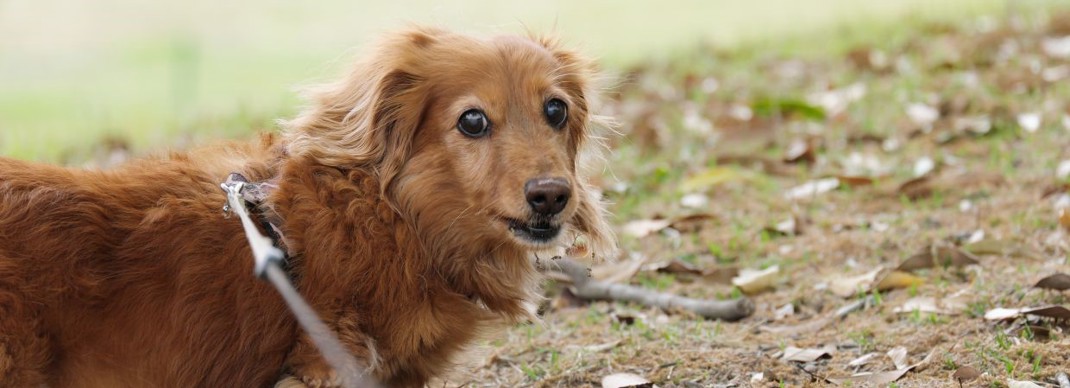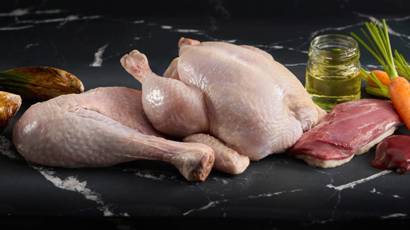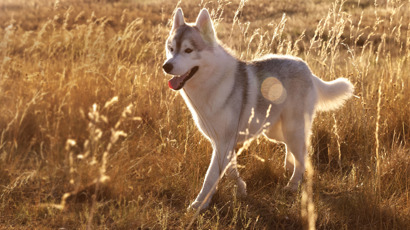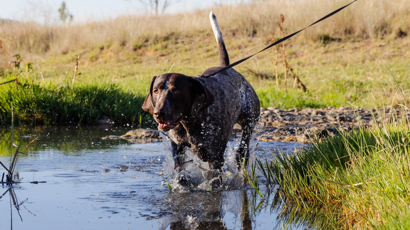Senior Dog Diseases

As pet-lovers, we never like to imagine our canine companion getting sick as a result of growing older. But by catching the signs of an old-age disease early, you have a better chance of managing any illnesses. These are more of the common illnesses we see in our older dogs and like all health matters with your pets, please speak with your vet if you’re concerned.
How to Spot an Ageing Dog
Whether we have two legs or four, it’s only natural for ageing to start slowing us down a bit. In older dogs you’ll begin to notice the signs when they’re around seven years old. Other changes (like the ones happening inside their body), may not be so noticeable.
Let’s take a walk through the signs sometimes seen in a maturing pooch, so you’ll know how to spot them.
- Just like us people, you may start to notice some white hair around their muzzle.
- They’ll probably appear to have less energy or interest in their usual lap around the park.
- They may also look a little stiff when they’re getting up from their bed or climbing the stairs.
- They may hesitate in standing up after a good snooze, or…
- Have difficulty getting in to the car..
On the inside, their sense of sight, sound and smell may be affected, much like their metabolism.
And just like we tend to forget more as we grow older, your doggie may not always remember where their favourite toy, or more concerning their water bowl is.
Arthritis in Dogs
This is a common ailment in older dogs, and often accepted by well-meaning pet-lovers as simply ‘old age’. But in reality, arthritis is a debilitating and painful disease that can be pretty rough on them, and impact on their quality of life.
Signs to look out for include difficulty standing up, stiffness, slowed walking, irritability and an out-of-character desire to spend time on their own.
You may also notice that your dog’s muscles are wasting away, as their activity levels lessen. But good news, there are medications that can help relieve pain and enable more movement.
Cancer
Every person in the world shivers at this word. Unfortunately even our furry four-legged can receive this diagnosis. Signs are completely dependent on what tissues area affected, so are very varied. This is why any changes you notice that don’t go away quickly or with love and TLC at home should be examined by a vet.
Kidney Disease
This is another common illness with our dear old friends. Signs include increased thirst, increased urination, vomiting and weight loss.
Liver Disease
With this serious disease, our older dogs often experience lack of appetite, vomiting, sometimes noticeable jaundice (with yellowing gums and conjunctiva of the eyes), and general unwellness.
Cataracts
Not to be confused with ‘sclerosis’ or simple clouding of the lens, cataracts are more serious, with a loss of eyesight causing them to bump into things or stop fetching toys. It’s important to get any eye changes checked by your vet for a full diagnosis and any treatment options.
Sick or well, you’ll want to make sure you’re giving special attention and TLC as they age and slow down.
With the right care, you and your ageing pooch will enjoy your time together.
Be wiser with age: See a vet.
Regular veterinary exams can help catch and treat any problems or illnesses before they take over their lives. Routine vet visits also means controlling health care costs, since spotting a disease early is less costly than treatment when it’s too late.
So, what usually happens at an annual senior dog checkup?
Firstly, they’ll get a thorough physical examination.
Your vet will also ask and hope to witness any changes in your dog’s behaviour (drinking more; changes in amount eaten; difficulty getting up, going up, stairs or walking) that may suggest a problem.
Based on this, your vet may also recommend blood and urine tests to check for age-related problems.
If your vet digs up any issues, a treatment plan can be worked out to suit both your pet and you. And because healthcare needs often change as your best mate gets older, it’s important to stay in touch with your vet and their highly skilled, supportive team, so you can adjust their plan as necessary.
Regular check-ups and reviews of your old dog’s health will help ensure a long, comfy life. Don’t forget, many age-old problems are treatable with the right combination of veterinary and home care.


